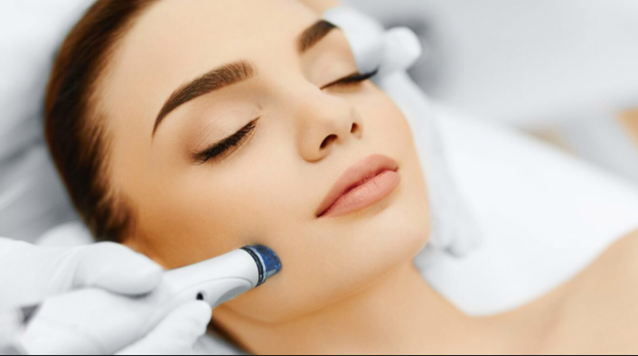
Many people who first learn about Smile Factory -Dermatology ask themselves, “do I really need to see a dermatologist?” You may also be asking yourself this question because you don’t think you have a serious enough condition, or you feel your skin and hair are healthy enough as it is, but none of that should keep you from getting your skin the care and attention it deserves! Not only does your skin protect you from dangers like UV rays and bacteria, but it is also one of the first features people notice when they see you.
For body parts that are this important to overall health, specialized care is required. That is where expert dermatologists like those found at Smile Factory Medical Center – Dermatology department comes in. Our dermatologists are specialists in treating issues related to the skin, nails, and hair. They are committed to helping you not only achieve healthier skin, but to feel more confident in how it looks and feels.
Acne
Acne occurs when the pores in your skin are blocked with sebum, bacteria, and dead skin cells that clog your pores. These skin cells, sebum (oily, waxy matter secreted from your glands), dead skin, and hair clump together to plug pores, causing an infection and resulting in inflammation, or a pimple. Acne is not discriminatory, and for most people, pimples and acne start to appear during puberty and last into the early 20s, and in more severe cases, even well into adulthood
Melasma
Melasma is a common skin condition wherein brown or grayish-brown “patches” develop. It typically develops on the face across the cheeks, nose, forehead, chin, and upper lip, but it can develop anywhere the body receives ample sun. It can also be triggered by hormones, and is not an uncommon pregnancy symptom sometimes called “the mask of pregnancy.” It is a harmless and painless condition that affects women more often than men and can linger for decades once it develops. Those with darker skin are more likely to develop melasma, as their skin contains more pigment-producing melanin.
Eczema
Eczema is a condition that leaves a red, scaly rash when the skin comes into contact with an allergen. It can present in many forms, anywhere on the body, and is one of the most common skin conditions we treat at Dermatology Centers of Northeastern Pennsylvania. Eczema is not contagious and can be induced by a predisposition in your genetic makeup, environmental factors, or even stress.
Hair Loss
Hair loss can be the result of several underlying conditions, stress, lack of iron and improper hair care. Many patients request an appointment once they notice that their hair is thinning or falling out, but sometimes, hair loss is not obvious.
Treating hair loss can be done at home or in our office depending on the type of procedure best suited for your needs.
Melanoma
Melanoma is one of the most dangerous forms of skin cancer and occurs when pigment-producing skin cells mutate and become cancerous. This form of skin cancer can develop anywhere on the body, and even begin in current moles that have become cancerous.
Warts
Warts are noncancerous growths that appear on the skin of patients who are infected with one of the many strains of the human papillomavirus (HPV). The HPV virus triggers unnecessary new cell growth which makes the outer layer of the patient’s skin become thicker, resulting in a wart.
Psoriasis
Psoriasis is a chronic disease that is caused by having an overactive immune system and the result of the skin production process moving too quickly. This sped-up process results in inflamed, itchy skin that may be red or scaly in appearance. Psoriasis appears in patches in areas of the skin that are already more difficult to keep moisturized such as your elbows, knees, and scalp. These patches of inflamed, dry skin can last for days or weeks at a time.
Vitiligo
Vitiligo is a skin condition marked by loss of skin color in patches. It can affect the skin and hair on any part of the body, even inside the mouth. Skin color is determined by melanin, and in those with vitiligo, melanin-producing cells die or stop functioning. This results in blotches of skin that are lighter than the surrounding skin.

